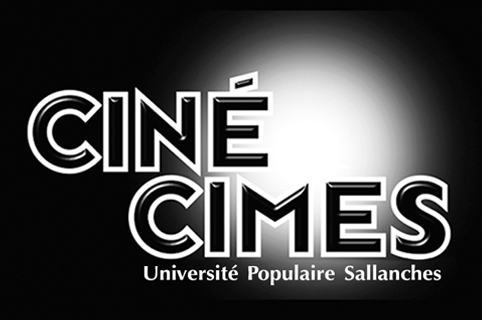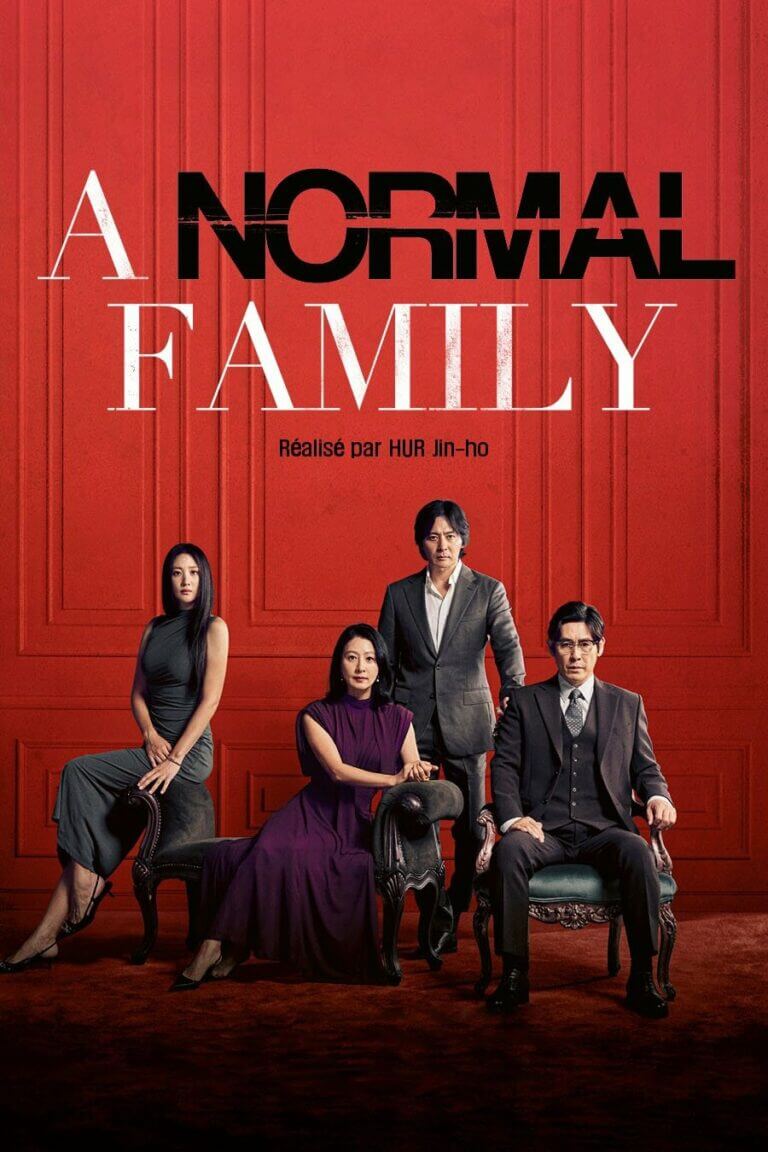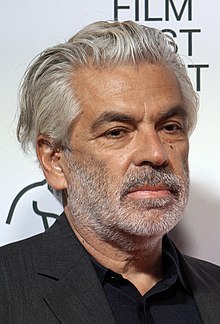Grèce
Réalisateur, dramaturge
Kinetta, Canine (prix « Un Certain Regard » Cannes 2009), Alps, The Lobster (prix du jury, Cannes 2015).
This is a much bigger project than your earlier work. Did it feel that way to you?
It did in a way just because when people say that it’s bigger, I think of something really big and rush to say this is much smaller compared to industry standards. But compared to the films I made in Greece, it’s obviously a much bigger film. That really meant that we were basically able to pay people. That’s the difference, really. We had a little bit of money for production design and costumes. But it wasn’t a big departure from our previous films, because you have to take into consideration that the films I made in Greece, I made with friends. They didn’t get paid and they gave much more than an average person would give. There’s an added value to that. All these favors you ask of people. The difference was not huge but it was substantial.
The premise of the movie is so eccentric, yet not that hard to describe — a near-future where being single is illegal, and those who don’t comply are transformed into animals. Still, it’s not the easiest sell. What was it like for you to explain the project to potential financiers?
I think we basically tried to get people onboard who are either familiar with my work or appreciated it when we showed it to them. It was very clear that we weren’t going to just make something completely different. It was hopefully a progression from what we were already doing. It was maybe a more accessible subject because it’s one of the main things that we’re preoccupied with in life — relationships and love.
We tried to approach those kind of people. In order to be creatively free, we ended up using this multi-part European co-production model that actually got us a little bit from different countries, enough to make the film, but not too much that you’re worried about the commerciality of the film. So they feel more confident about supporting it.
« The Lobster » is definitely your warmest work.
I think I did want to make a romantic film. I’m not sure if it was intentional from the very beginning, but I’m sure somewhere while writing the script it became intentional. I wanted it to have a real love story. I started thinking for the first time of using music in my film. In any case, I would never make a film that was only one thing. Even if it’s my warmest, most romantic film, I still want it to have the more cynical view of things, showing the irony and absurdity of things that we consider normal.
How close are the themes surrounding relationships in the film to you?
I can’t make my mind up because I’m still living my life and going through all these experiences. This is an honest account of the view I have so far based on what I’ve seen and experienced. Hopefully, the film is open-ended and open to interpretation, with plenty of questions about this topic. I think human relationships — the whole thing is cruel. It’s very difficult. But I also believe that, probably, although much of it is fake and fabricated, because we feel the need to go through all these things, there’s probably some truth to it here and there. For other people it’s a bigger truth for a bigger duration. For others, less. I don’t really have the final answer. Is there real love and how will you find it and how you will you know?
The specific nature of this imaginary world is really well fleshed out. How much of it did you figure out in advance?
I think we knew as much as you see in the film. Maybe we made a few speculations about other things. But this is a very fictional world and we only need to flesh out what’s there without worrying over the rest. Anyone can make any assumption based on those rules you’ve created and the reality that you’ve shown for that world. Those speculations are just as valid as mine. Is the whole world organized like this? Just a particular region? I would say it’s the whole world, but someone else might not get that from the film. That’s fine, because if we set out to show the whole world, we’d really veer off to other directions that you don’t really need to, which is missing the point.
Then you face the challenge of placing actors in this world — more specifically, well-known professionals. What sort of challenges did you face working with them?
I was very lucky that they were aware of my work and liked it, apparently, since they wanted to do this one. Most of them knew of my work. But I didn’t want to meet them unless they had, because I didn’t think there was any point in meeting someone and convincing them to do it if you have previous work. They had to see at least one of my films to see if they wanted to be associated with me. But these actors seemed to really get the work or material. They didn’t try to go against it; they accepted it themselves and offered to work in a different way. There wasn’t any discussion of how we would approach this accept for me saying, « This is how it’s done and don’t look for anything more…I’m choosing you because I know you’re going to be good in this and there’s no point in second-guessing ourselves. Do what you think you what you should do and I’ll tell you if it’s right. Just keep on trying things. » It could have been a disaster, but it turned out really well.
Both Colin Farrell and Rachel Weisz are working in very different veins here. How much of that did you coach out of them versus their own initiative?
It’s a combination of both. With Rachel, I was surprised that I had never seen her like that before, because it is natural for her. They both have great instincts. To this day, I don’t really know what it is, because I never wanted to mess with it. If you start analyzing what it is with them and make it too particular, then it becomes self-conscious and fabricated. I never wanted to mess with that. I tried to stay away from them as much as possible and take advantage of their qualities. I know their work, but I prefer to watch interviews they’ve done, whatever I can find, before I meet them. That helps me understand if their sensibilities are right for these characters.
So what tipped you off in this case?
It’s instinctive, not rationalized. For instance, I understood that Colin had a great sense of humor when I was watching him speak. I’ve seen him being funny. His presence has this other quality — he can be charming even when he’s soft, easy-going, and sensitive. He’s very complex as a person, and I thought that would be right for the film.
Speaking of being funny, tell me about the humor in this film. It certainly has moments that could be described as « deadpan, » whether or not you resent that term…
[laughs] Of course I do! Don’t all filmmakers?
There’s a tone we’re trying to achieve from the writing stage. I probably do something quite particular with bringing it to the screen and shaping the story, making many choices beforehand. But even the characters are never really described in the script. There’s a rough description about Colin’s character being a middle-aged guy, but you don’t really know what he looks like. Sometimes we do change when we start casting the thing. It starts to make sense when we cast someone in this role who might be completely different from the person who imagined earlier in this other role. There’s this different chemistry between them that we hadn’t thought about before. Then someone comes in and they’re much funnier than you expect, or more serious, and it changes the tone. You just have to figure out if that’s right overall. We always welcome this contradiction between humor and drama, the ridiculous and the dark, so when you put them all together, they create this other tone that’s beyond these individual scenes. Because you’re alternating from one to the other, you’re left in between. I find it very interesting to keep people uncertain about what is what and figure it out as they go.
That’s something you’ve done in all your films. But now you’ve made a movie that has other expectations for it. How did they impact you?
There are so many aspects to it. I’m writing with other people now in a more professional environment that has more restrictions. There are all these issues with controlling the little things, from how you finish the film to finding distribution for it. You constantly learn and try to control the reputation of your film. Every time you change something, all these other variables change, and you have to change things all over again. I don’t think that ever stops.
What about your relationship to audiences has changed? Does it make a difference to you that « The Lobster » might open up your work to more people?
I’m just trying to stay true to what we do. I wanted to make a bigger movie in the sense that I would have actually have certain tools at my disposal — money, talent, locations — but not just for the sake of it appearing as a bigger movie.
Do you miss working with your old group of collaborators in Greece?
I haven’t missed it yet, but I might. There are so many things that are different about making a film this way. At some point, it might be much better to do it the old way and be more flexible without these means. It just depends.
What’s your next English language project about?
There’s one we’ve been developing for some time, an English period film that takes place during Queen Anne’s rise. There’s another thing I’m writing that’s more like a psychological thriller. We’ll see which one happens first.
By Eric Kohn | Indiewire mai 19, 2015



